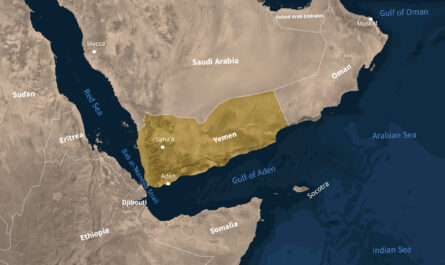The Israel-Hamas Conflict: Understanding the Complexities
The Israel-Hamas conflict is a long-standing and deeply entrenched dispute that has endured for decades, marked by periods of intense violence and fragile ceasefires. Rooted in historical, political, and religious grievances, the conflict between Israel, a sovereign state established in 1948, and Hamas, an Islamist militant group that controls the Gaza Strip, remains one of the most intractable conflicts in the Middle East.
The Israel-Hamas conflict is deeply rooted in the complex history of the Israeli-Palestinian conflict, marked by territorial disputes, nationalist aspirations, and competing claims to land and sovereignty. Understanding the evolution of the Israel-Hamas issue requires delving into the historical context and key events that have shaped the dynamics between these two adversaries.
Formation of Israel and Palestinian Displacement
The origins of the conflict can be traced back to the late 19th and early 20th centuries when Zionist Jews began immigrating to Palestine, then under Ottoman and later British control, with the aim of establishing a Jewish homeland. Following World War II and the Holocaust, international support for a Jewish state grew, leading to the establishment of the state of Israel in 1948.
The creation of Israel, however, resulted in the displacement of hundreds of thousands of Palestinians, leading to widespread resentment and anger among the Palestinian population. Many Palestinians became refugees, seeking refuge in neighboring Arab countries or in territories that remained under Palestinian control.
Israeli Occupation and Palestinian Resistance
In the aftermath of the 1967 Six-Day War, Israel occupied the West Bank, including East Jerusalem, and the Gaza Strip, territories that are predominantly inhabited by Palestinians. The Israeli occupation, characterized by the construction of settlements and the imposition of restrictions on Palestinian movement and rights, further fueled Palestinian grievances and resistance.
Amidst this backdrop, various Palestinian factions emerged, including the secular Fatah movement led by Yasser Arafat and the Islamist group Hamas. While Fatah pursued a strategy of armed struggle and diplomacy to achieve Palestinian statehood, Hamas adopted a more confrontational approach, advocating for the establishment of an Islamic state and employing tactics such as suicide bombings and rocket attacks against Israeli targets.
Hamas Rise to Power
Hamas gained prominence during the First Intifada, or Palestinian uprising, in the late 1980s, presenting itself as a grassroots movement committed to resisting Israeli occupation and addressing the socio-economic needs of Palestinians. In 2006, Hamas won a decisive victory in Palestinian legislative elections, defeating Fatah and subsequently seizing control of the Gaza Strip in 2007 after a violent conflict with Fatah forces.
Hamas, an acronym for Harakat al-Muqawama al-Islamiyya (Islamic Resistance Movement), was founded in 1987 during the First Intifada, or Palestinian uprising, against Israeli occupation. Initially established as a social and political organization advocating for the establishment of an Islamic state in historic Palestine, Hamas later evolved into a militant group responsible for numerous attacks against Israeli civilians and security forces.
Gaza Strip: Hamas Stronghold
Following the Israeli disengagement from the Gaza Strip in 2005, Hamas emerged as the dominant political and military force in the territory, winning legislative elections in 2006 and subsequently seizing control of Gaza in 2007 after violent clashes with rival Palestinian factions, including Fatah, the party led by Palestinian Authority President Mahmoud Abbas.
The Israel-Hamas conflict is characterized by cycles of violence, often triggered by specific incidents such as rocket attacks by Hamas militants targeting Israeli communities, retaliatory airstrikes by the Israeli military, clashes at religious sites in Jerusalem, or controversial Israeli policies such as settlement expansion in the occupied West Bank.
Cycle of Violence and Failed Peace Initiatives
The Israel-Hamas conflict has been characterized by cycles of violence, with periods of intense fighting followed by fragile ceasefires and attempts at peace negotiations. Efforts to resolve the conflict, including the Oslo Accords in the 1990s and the Annapolis Conference in 2007, have ultimately faltered, hindered by mutual distrust, divergent political agendas, and the failure to address core issues such as borders, settlements, and the status of Jerusalem.
Humanitarian Consequences and International Response
The protracted nature of the Israel-Hamas conflict has exacted a heavy toll on civilians on both sides, resulting in loss of life, displacement, and widespread suffering. The humanitarian situation in the Gaza Strip, in particular, has been dire, exacerbated by Israeli blockade and restrictions on movement, as well as internal political divisions and economic hardship.
International efforts to resolve the Israel-Hamas conflict have been met with limited success, with various actors, including the United Nations, the United States, and regional powers, attempting to mediate ceasefires and promote a negotiated settlement. However, achieving a lasting peace will require genuine dialogue, compromise, and goodwill from all parties involved, as well as a commitment to addressing the legitimate grievances and aspirations of both Israelis and Palestinians.
In conclusion, the Israel-Hamas conflict is a deeply entrenched and multifaceted dispute with no easy solutions. Its resolution will require a comprehensive approach that addresses the root causes of the conflict and seeks to achieve a just and lasting peace for both Israelis and Palestinians.





Hello! I could have sworn I’ve been to this website before but after browsing through
some of the post I realized it’s new to me. Anyhow, I’m definitely happy I found it and I’ll be book-marking and checking back often!
Hello, i read your blog occasionally and i own a similar one and i was just
curious if you get a lot of spam comments? If so how do you stop it, any
plugin or anything you can advise? I get so much lately it’s
driving me mad so any support is very much appreciated.
Wow, this paragraph is fastidious, my sister
is analyzing such things, therefore I am going to inform her.
Greetings! I know this is kind of off topic but I was wondering which blog
platform are you using for this site? I’m getting sick and tired of WordPress because I’ve had problems
with hackers and I’m looking at options for another platform.
I would be fantastic if you could point me in the direction of a good platform.
Hey I know this is off topic but I was wondering if you knew of any widgets I
could add to my blog that automatically tweet my newest twitter updates.
I’ve been looking for a plug-in like this for quite some time and was hoping maybe you would have some
experience with something like this. Please let
me know if you run into anything. I truly enjoy reading your blog and I look forward to
your new updates.
I used to be able to find good info from your articles.
Everything is very open with a very clear clarification of the issues.
It was really informative. Your website is very useful.
Thanks for sharing!
Heya i’m for the first time here. I found this board and I find It truly useful &
it helped me out a lot. I hope to give something back and
help others like you aided me.
Hi there! I know this is somewhat off topic
but I was wondering which blog platform are you using for this
site? I’m getting sick and tired of WordPress because I’ve had issues with hackers and I’m looking at options
for another platform. I would be awesome if you could point me in the direction of a good platform.